Drawing on Loop Through An Objects Properties In C# and Using LINQ to loop through inner class properties in outer class collection
Where you have objects (Phase) in a collection (PhaseRepo), I believe it is possible to specify propertiesOfInterest in the objects (Phase) and create a Dictionary to summarise the properties.
Please find below my attempt in LinqPad. Please assist with the syntax or advise an alternate approach.
Thank you
enum Dir {Up, Dn}
struct BmkKey
{
public Dir Direction;
public string DetailType;
}
class Phase
{
public Dir Direction { get; set; }
public double StartToTerminationBars { get; set; }
public double StartToTerminationPriceChange { get; set; }
public double StartToTerminationGa { get; set; }
public double NotRequiredProperty { get; set; }
}
class PhaseRepo
{
public List<Phase> Phases { get; private set; }
public List<Phase> GetPhases()
{
return new List<Phase>()
{
new Phase() { Direction = Dir.Up, StartToTerminationBars = 3.0, StartToTerminationPriceChange = 4.0, StartToTerminationGa = 4.0},
new Phase() { Direction = Dir.Up, StartToTerminationBars = 6.0, StartToTerminationPriceChange = 8.0, StartToTerminationGa = 4.0},
new Phase() { Direction = Dir.Dn, StartToTerminationBars = 3.0, StartToTerminationPriceChange = -4.0, StartToTerminationGa = -4.0},
new Phase() { Direction = Dir.Dn, StartToTerminationBars = 6.0, StartToTerminationPriceChange = -8.0, StartToTerminationGa = -4.0},
};
}
}
void Main()
{
var phaseRepo = new PhaseRepo();
var phases = phaseRepo.GetPhases();
//phases.Dump();
var propertiesOfInterest = typeof (Phase).GetProperties(BindingFlags.Public | BindingFlags.Instance)
.Where(prop => prop.Name == "StartToTerminationBars"
|| prop.Name == "StartToTerminationPriceChange"
|| prop.Name == "StartToTerminationGa")
.ToList();
//propertiesOfInterest.Dump();
// Please Help...
var test = propertiesOfInterest
.SelectMany(propertyInfo => phases
.Select(phase => phase)
.Select(keyValuePair => new
{
phase.Direction,
keyValuePair.Key,
keyValuePair.Value
})
.Select(arg => new
{
Key = new BmkKey
{
Direction,
DetailType = propertyInfo.Name
},
Value = (double)propertyInfo.GetValue(arg.Value, null)
}))
.GroupBy(grp => grp.Key)
.ToDictionary(grp => grp.Key, grp => x => x.ToList());
test.Dump();
}
Expected output:
